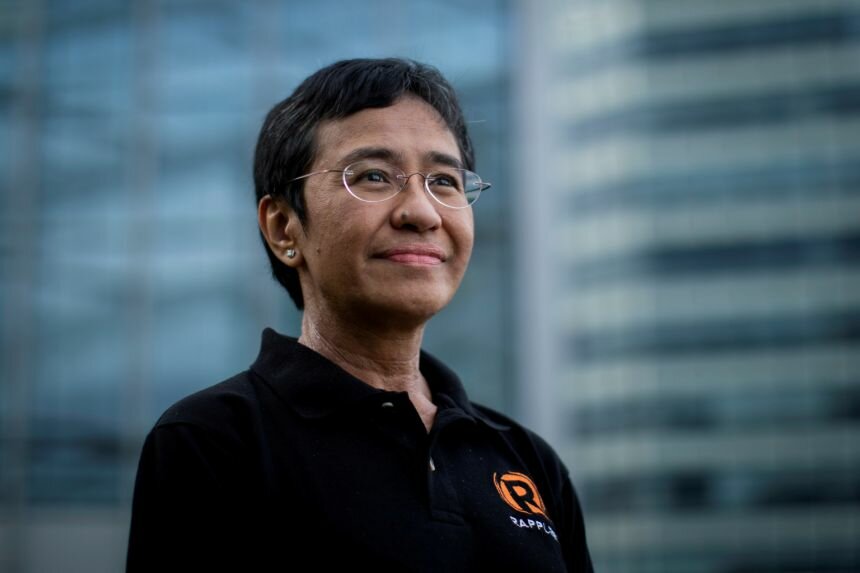It was April 2016, and veteran journalist Maria Ressa’s predictions that Rappler – the independent digital news platform she’d co-founded – would break even within five years of its inception, were beginning to reach full flower.
Buoyed by a $2 million seed funding round and a well-buttressed belief in technology’s ability to hasten growth, it seemed that her company was on the cusp of pulling off something that would typically take a decade to realise in a traditional media conglomerate.
Then came the 16th Philippine presidential election, triggering a chain of events that kneecapped her organisation and led to her subsequent arrests.
“President Duterte was elected in May, and the attacks against us started as soon as we began covering the drug war. Within hours of the president taking his oath of office, the first drug war related death happened, and our reporter and camera crew would return each night with evidence of at least eight dead bodies,” she recalled of the extrajudicial killing campaign the bolshie leader is accused of launching.
Ressa, who was in the process of raising what would have been the equivalent of Rappler’s series B funding round, and had just hired a Chief Technology Officer from Silicon Valley to help build a new platform, was buffeted by legal fees. The latter stemmed from a volley of criminal and civil charges lobbed at her by the Philippines’ Justice Department.
“When the government tries to shut you down, it has an impact. I think the government expected us to just fold up; it was a war of attrition, but I’m glad we didn’t,” said Ressa, who formerly headed ABS-CBN, the Philippine’s leading broadcaster that was taken off the air last year. The redoubtable Nobel Peace Prize winner – lauded for her unflagging efforts to protect press freedom – was speaking at She Loves Tech Global Summit, part of a larger conference premised on sustainable recovery driven by women in the tech industry.
Headlining the two-day summit that runs till 4 December, she shed insight into how she steered her company towards financial sustainability, despite repeated attacks by the sabre-rattling Philippine president. He’s accused her of calumny and infamously referred to her as “every inch a prostitute” – among other incendiary brickbats.
“In January 2018, the government tried to revoke our licence to operate, then our advertisers started getting calls by April 2018 and our advertising revenue dropped by 49 per cent,” she recounted. Forced to devise an alternative business model, Ressa and her team shifted tack, developing a diversified business model based on exposing networks of disinformation for people or companies under attack. Rappler is also a fact-checking partner of Facebook.
“We had the data, those pertaining to the recidivist networks such as the terrorist organisations we used to find, so we realised that we can create a wall and productise it. Every company and person on social media would need to understand how the information ecosystem works,” she shared.
It’s an issue of particular piquancy, in light of multifarious disinformation campaigns waged across a slate of social media platforms. One such operation culminated in the United States Capitol Hill riot earlier this year. Even more pervasive, is fake news propagated during the pandemic that engendered vaccine hesitancy.
“There was a 2018 study done at Massachusetts Institute of Technology that showed that lies laced with anger and hate spread faster and further than facts on social media, and Facebook is the world’s largest distributer of news,” she said. To illustrate her point, Ressa points to algorithmic bias on social media platforms associated with the microtargeting of content, which works to skew perceptions.
“If you clicked on, say, a 9/11 conspiracy, you would be recommended another one (similar content), which would take you further down the rabbit hole, so this is one of the instances where the very platforms that deliver the news are being manipulated – social media has become a behaviour modification system,” explained the investigative journalist, who describes the conundrum as “a virus of lies infiltrating our info ecosystem”.
“If we take Facebook and Whatsapp combined, we are talking about over 3.2 billion users globally, so our views of the world are being changed.”
While such alarming figures loom as an object lesson on the pitfalls of mass communication, Ressa’s digital platform has emerged as a bastion of quality journalism – among the most popular and influential websites in her country that works to quash fake news. And it appears that hanging the ideals of integrity have paid off.
“From 2018 to 2019, our business model grew by 2,000 per cent and this allowed us to actually hire more people last year in the pandemic. In 2020, our revenue grew by 50 per cent, so never look at a crisis as something to bring you down – it is also an opportunity for you to rise to be the best that you can be,” she said.
Lending ballast to her cause, is the Philippine Court of Appeals’ latest adjudication allowing Ressa to travel to Oslo, Norway, to personally accept her Nobel Peace Prize for 2021. The Duterte government has been underfoot in blocking her travel plans, citing ongoing litigation against her.
“Never say never, you have to get through the valley of death and then keep going up,” she advised budding entrepreneurs.

